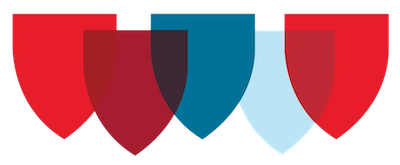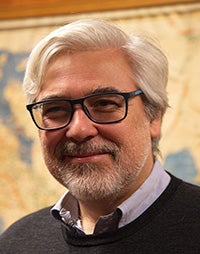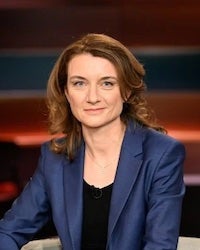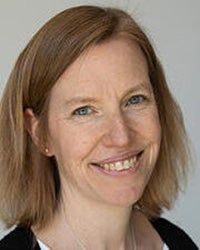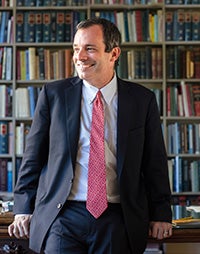Program
Lead-In Virtual Free
Tuesday, November 29th at 7 p.m. ET
Zóbel. The Future of the Past
Felipe Pereda, Fernando Zóbel de Ayala Professor of Spanish Art, Department of History of Art + Architecture
Fernando Zobel (49'), a Harvard graduate, was an important figure of the Spanish avantgarde, and the founder of the first museum of Contemporary art museum. The exhibition is devoted to his study and modern interpretation of the works of the old masters (he was a scholar as much as a painter). This lecture covers his early Harvard years : his relation to Walter Gropius and modern artists exhibiting their work on campus in the 1940s such as Georg Grosz, his translation and illustration of Federico Garcia Lorca's plays for a class in comparative literature (1946), his work as a caricaturist for the Fox Club and the Harvard Alumni Bulletin, and his friendship with the curator of drawings at the Houghton Library.
Lead-In Virtual Free
Thursday, December 1st at 6 p.m. ET
The War on Ukraine and Its Impact on the Future of Europe
Daniela Schwarzer, Pierre Keller Visiting Professor of Public Policy
While Russia's war on Ukraine has already caused hundreds of thousands of deaths, it also continues to have major economic and security damages to Europe and the globe. How does Europe continue to deal with the escalating conflict in Ukraine, its continued dependence on Russian energy, manage its security arrangements to European nations, and lay the foundations for a post-war Europe.
In Person Paid Programming
Saturday, December 3rd, 2022
Harvard Club of Boston, 374 Commonwealth Avenue, Boston
8:45 a.m. to 9:30 a.m.
Registration and Coffee, Tea, and Muffins
Faculty Lecture — 9:30 a.m. to 10:30 a.m.
Stem Cells, Aging, and Aging Cells: How Can We Preserve Healthy Organ Function Throughout Life?
Amy Wagers, Forst Family Professor of Stem Cell and Regenerative Biology; Co-chair of the Stem Cell and Regenerative Biology Department, Harvard University; Senior Investigator in the Section on Islet Cell and Regenerative Biology, Joslin Diabetes Center
Research in Dr. Wagers’ lab seeks to discover fundamental principles that govern tissue aging and determine stem cell function in organ regeneration and degenerative disease. These efforts build upon novel discoveries and unique experimental models, which are defining the cellular and molecular networks that control the body’s ability to repair itself after injury and identifying molecular signals delivered via the bloodstream that may be able to reverse the effects of aging across tissues. Dr. Wagers’ presentation will describe current research defining the key drivers of organismal aging and discuss potential therapeutic strategies to target these to alleviate the growing burden of age-related disease.
10:30 a.m. to 11:45 a.m.
Breakout Discussion Sessions
Breakout sessions will be held throughout the Clubhouse.
Keynote Luncheon — 11:45 a.m. to 1:30 p.m.
The New Deal State in Peril?
John Manning, Morgan and Helen Chu Dean and Professor of Law, Harvard Law School
With the extensive recent focus on the shifting landscape of individual constitutional rights, commentators have paid less attention to pivotal recent decisions by the Supreme Court sharply checking Congress’s long-recognized power to rely on federal agencies to develop legally binding regulatory policy across an array of important subjects. Focusing on the Court’s recent decisions displacing the federal workplace COVID vaccination mandate, eviction moratorium, and clean power plan, Dean Manning will explore the legitimacy and implications of the Court’s recent turn toward deregulation.
Harvard Club of Boston Member Price per member: $57 (member fees not included)
Non-Member Price per person: $75
Recent Graduate Price (2017-2022) per person: $50
Continental breakfast, all Harvard faculty presentations, and three-course luncheon are included for this in-person program at the Harvard Club of Boston. As always, a portion of the proceeds will benefit the Harvard Club of Boston Scholarship Foundation.
Register Now
